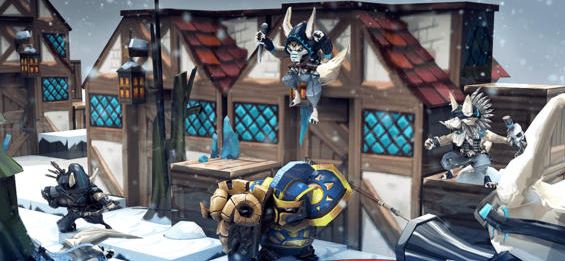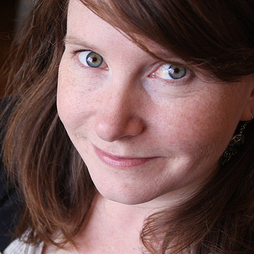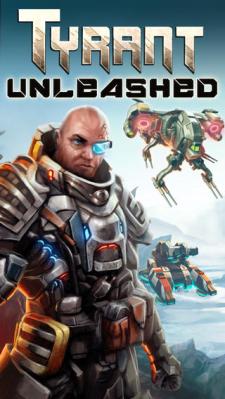It was just one year ago when Kongregate dropped a cool $10 million, investing heavily into the mobile market. But since then, it seems the giant gaming portal’s been awfully quiet. Unless you’re actively playing one of its games, when’s the last time you’ve really heard or talked about this company?
But don’t mistake that lack of publicity for inactivity. Kongregate’s been busy behind the scenes, pumping up its primary web-based property as well as its burgeoning mobile library. Both have grown a lot, but Kongregate wants more. A lot more.
We chatted with cofounder Emily Greer, who recently took over the position of CEO from her brother, Jim Greer, who’s looking to do some nonprofit political work outside of gaming. Emily catches us up with how Kongregate is doing now, what its plans are moving forward, the mistakes it has made, and just how different the mobile and web-based gaming markets are.
GamesBeat: When people think of Kongregate, they traditionally think of web-based games. But you’ve recently expanded into mobile and downloadable games. How have those new divisions impacted the overall business?
Emily Greer: Downloadables was an experiment, and I’ll frankly say that it didn’t work out. On our platform, people were just so accustomed to the immediacy of the browser experience that the breakage in getting to the download wasn’t worth it. We weren’t driving enough traffic to the games to make it worth our while, or the developers’ while, to implement it. We did about six or seven games and then agreed that it wasn’t worth more time. That’s not the direction that the industry is going.
Mobile is a completely different story. That’s been a true investment, a very substantial investment that we’ve been making over the last year. Last February we announced a mobile publishing fund, $10 million, and hired staff to augment our existing web-platform people with some additional producers and more in-the-trenches type of mobile game people. We’ve got, I think, around 20, 21 games signed right now. This feels like this is something where our knowledge from free-to-play and game design on the Web, mixed with our extensive relationships with developers from web, plus [parent company] GameStop’s capital to invest in mobile marketing, is really coming together in a way so that we can help a lot of small studios.
That’s one of the big stories of the last year or so, how hard it is for a small company to compete on mobile. You need deep pockets to do [user acquisition], and you need some patience, too. In the early days of Facebook, people were spending marketing money and getting a return on their investment in six weeks. You could float your own business that way. But if it takes three or six months to get payback on your marketing investment, which is what’s really happening now with mobile CPIs [cost per install] – $2, $3, $4, $5 – then it takes a situation where someone has more capital to be able to float that period.
We’re excited with how it’s going, with our progress. We think we’re bringing something different to publishing in mobile, something that was needed.
GamesBeat: Does the addition of mobile dilute the message of the traditional Kongregate, which is this one place, one account, one URL to get a ton of your games? Now you’re expanding into different places.
Greer: I don’t think so. We want to go where our players are going. The vast majority of people now are playing mobile games, whether on a smartphone or a tablet or an iPod Touch. If our player wants to be playing through the App Store or wherever, we should be able to take Kongregate to them.
People used to come, and still will continue to come, to Kongregate.com. Our traffic increased 30 percent last year. But now, when they’re on mobile, they can come to m.Kongregate.com and see our list of games, or they can search for Kongregate and see all of our titles. That’s a different method of discovery.
We already have achievements. You can use your Kongregate login. You can use Kongregate forums, for example. The forums for [Kongregate’s first mobile game] Tyrant Unleashed are very active. That’s something where we’re going to continue to build out — that type of social feature that’s connecting our games, both to the Kongregate web experience and to each other. A few publishers and developers have tried [something similar], but with the tech that we’ve built up over the years on Web and our experience of how to connect people, that’s something we can do at a different level.
GamesBeat: Your VP of mobile recently stated that Kongregate will be working with “select mobile developers.” But the impression that I get from looking around Kongregate: open doors, all developers are welcome, put your games on our system. Is there a different philosophy as far as the type of developers that Kongregate wants for mobile versus Web?
Greer: Kongregate’s always been open, but the vast majority of game plays are coming on a much narrower set of games. There are 80,000 games, but probably 2,000 are the ones that are receiving the most plays. Even with open doors, there’s always been a narrowing process in terms of what we’re exposing, what’s really getting played.
About half of our titles that are live are the deep kind of games — CCGs [collectible card games] and MMOs [massively multiplayer online games]. Half are endless runners and beat-em-ups and other types of games that have a very different kind of appeal. That’s the mix that you get on Kongregate, and we also think it’s appropriate on mobile. We’re not going to work with the 10,000 developers that we have on Web.
We want to have very high-quality relationships. That’s one of the things that’s important in mobile, for a publishing relationship. It’s an investment in a game. It shouldn’t something where the developer is giving over a game to a publisher, and they try to do some marketing, and if it works they’ll spend more, and if it doesn’t they’ll walk away. That’s not really a partnership. That’s just a publisher picking up some money off of the ground.
We want a much closer relationship. That, unfortunately, means that we can’t work with the thousands of developers. But we’re open to all those thousands of developers and talking to them about pitches.
We’re also considering a broader group of games. Not every game has to be top 10 grossing for it to be a success. If it’s a small team that’s taken a few months to build it, hopefully we can design a promotional system where they can achieve a level of success that’s right for that game, while at the same time supporting a deeper game from a 10-person or a 20-person studio that’s invested a lot of time in it — a Game of Thrones: Ascent — where the revenue opportunities are at a different level.
We’re trying to build up a mixed ecosystem, which I think is part of the long-term Kongregate story of being a place where devs of all types can go.



